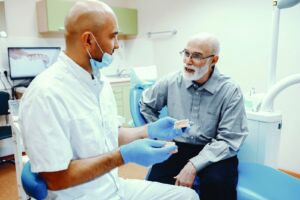
Dementia Linked to Poor Oral Hygiene
A past filled with interminable dental medical problems expands the chances of dementia, as indicated by a communitarian concentrate between analysts at National Taiwan University Hospital and the University of North Texas Health Science Center.
Late investigations recommend that harm to the cerebrum results from neighborhood fiery cells safeguarding the mind against an intermittent however low-level microbial attack. This theory recommends that any procedure that keeps up an irresistible supply, for example, incessant oral, lung, or gastrointestinal sickness, advance the entrance of inhabitant microorganisms to the mind, or bargain the cerebrum’s capacity to bar organisms from section would expand the chances related with obtaining dementia.
One end product inside this theory recommends that the microorganisms that populate the mouth have a favored course of access to the cerebrum by voyaging in reverse along the short nerves between the mind and mouth.
The present investigation inspected the relationship between oral wellbeing and dementia utilizing in excess of 200,000 new dementia cases recognized in the National Insurance Database for the whole populace of Taiwan. There were a larger number of ladies influenced than men, which seemed to result from their more noteworthy portrayal in the maturing populace.
Components that modify perfusion or oxygenation of the mind like stroke, hypertension, diabetes, and pneumonia expanded the chances of dementia. Records from the earlier 10 years additionally demonstrated that dental methodology that immediately reestablished homeostasis brought down the chances of dementia, and a past filled with interminable dental issues raised the chances of dementia.
“Prevention and delay are key goals in the approach to dementia. Good dental care and perhaps simple daily dental hygiene with regular brushing and rinsing with an antibacterial mouthwash may be a productive intervention, especially among populations already having increasing difficulty performing their own routine daily care,” said Dr. J.L. Caffrey of the Cardiovascular Research Institute at the University of North Texas Health Science Center.
